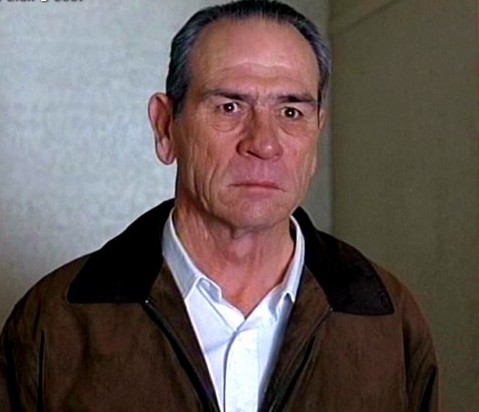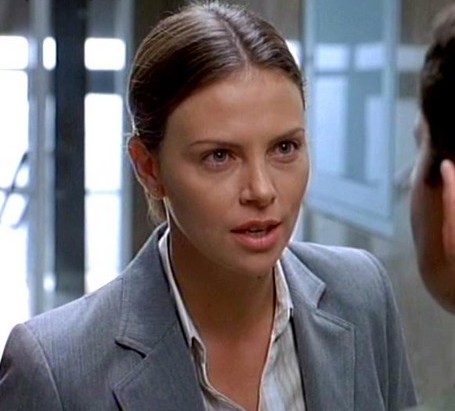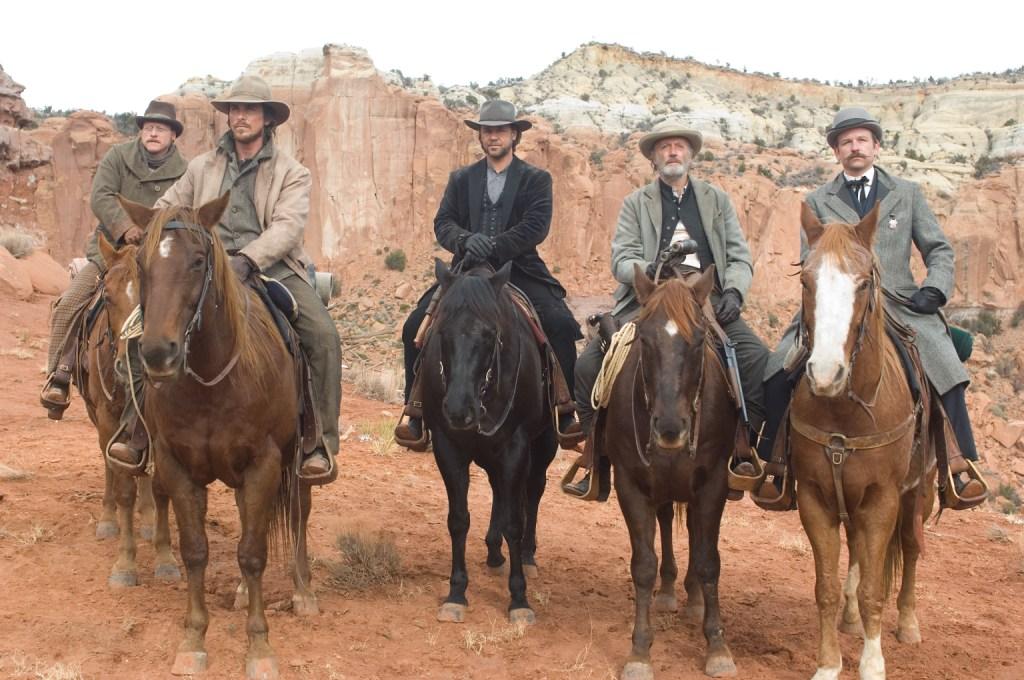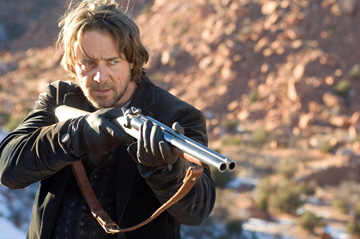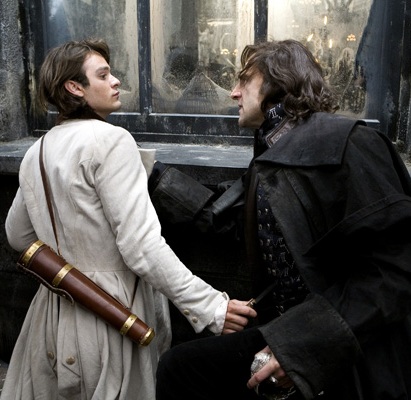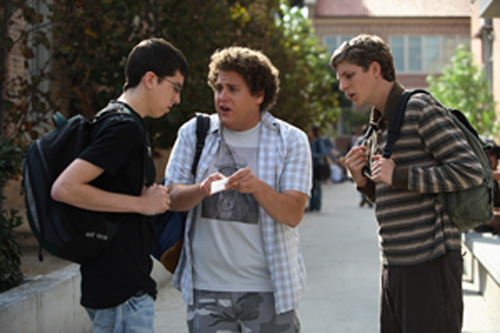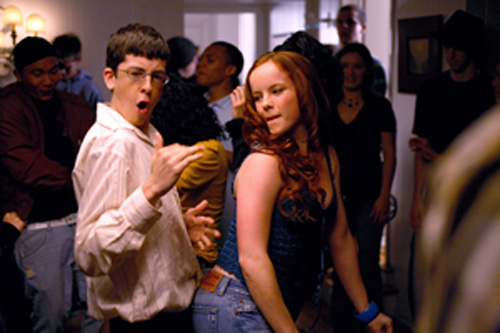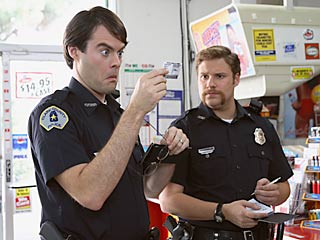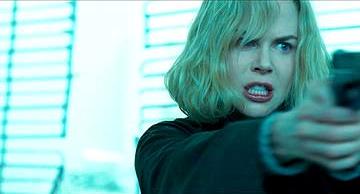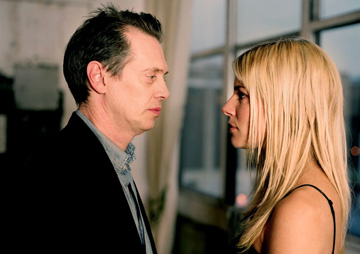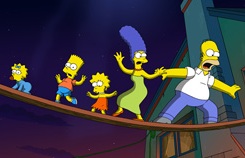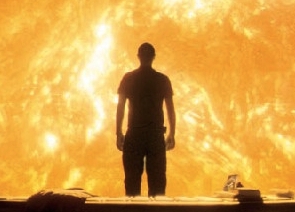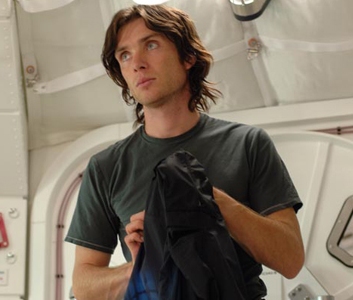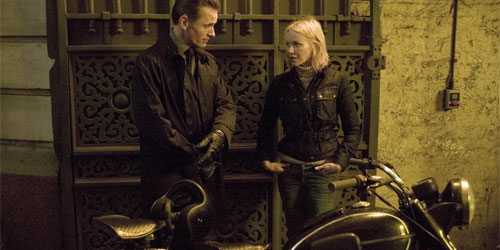
The King of the West may be a man of the East in David Cronenberg’s London gangster flick Eastern Promises, but — Anduril or no — he’s no less handy in a tight spot. As with Mortensen and Cronenberg’s last collaboration, A History of Violence, I found Promises to be a sleek and rousing genre exercise that’s being more than a little overpraised. I enjoyed the film, it’s worth catching if you have the stomach for it, and its steam bath centerpiece will be talked about for a good long while. But, to be honest, there’s really not much there there. Remove that fight from the equation and you’re basically left with sizable helpings of immigrant and gangster cliche. (Cronenberg seems to know as much — he tips his hand in the campy accordionist scene.) Naomi Watts is a fine actress, but she’s not given anything to do here besides tote around the film’s two Maguffins. Armin Mueller-Stahl, the Russian godfather of the tale, plays the same avuncular-going-on-sinister note throughout. And, while exemplifying the adage “still waters run deep” once again, Viggo’s character is almost too much of an archetypal badass — You can see the twists and turns in his story coming a mile away.
After a grisly assassination in a barber shop that’d do Sweeney Todd proud (just to let you know we’re in Cronenberg territory), Eastern Promises opens with the death of a young, drugged-out, and pretty clearly abused Russian teenager in a London hospital…and the subsequent birth of her child. (Speaking of Cronenberg territory, he films the newborn baby like it’s something out of Existenz.) Having lost her own pre-born of late, Anna Khitrova (Watts), the midwife in attendance, takes a shine to this orphaned child, and thus sets out with the dead girl’s diary to locate the foundling’s proper home. Anna’s (sort of) ex-KGB uncle takes one look at this untranslated journal and warns of a dangerous road ahead. Nonetheless, Watts’ investigation quickly takes her to a Russian restaurant run by Mueller-Stahl, an Old World type of fellow who’s clearly something of a n’er-do-well despite his fantabulous borscht. Soon enough, Anna also stumbles upon Mueller-Stahl’s flamboyant, hard-drinking Dauphin of a son (Vincent Cassel) and his assigned playmate Nikolai, a stoic, tough-as-nails chauffeur (Mortensen). And when it inevitably turns out that Mueller-Stahl et al are actually part of the feared vory v zakone (a.k.a. the Russian cosa nostra), the fates of Anna, the baby, the diary, and all involved come to rest in the hands of one enigmatic, very tattooed, and possibly conflicted driver…but what’s his angle? Let’s just hope the Russians love their children too.
I’m not going to spill Viggo’s secrets here, tovarisches, although you can probably guess he’s not one to just up and off a baby when called upon to do so. (Also, if this sounds a bit like Dirty Pretty Things, it may be because the films share a screenwriter.) Nonetheless, most of the buzz surrounding Eastern Promises justifiably centers on a fight scene in the middle going, when Viggo, naked as the day he was born, is confronted by two mobsters who don’t have his best interests at heart. It’s hard to say whether this gory steam room fracas is better than the splendid hand-to-hand duel in The Bourne Ultimatum, but it’s up there. If that deft, practiced, lightning-quick Bourne melee was a stiletto, this brutal scene packs the visceral, bone-crushing crunch of a mace. It’s also extremely hard to watch, and not because of Mortensen’s dangly bits — let’s just say David Cronenberg and sharp objects are involved. (Call me a lover, not a fighter, but when it comes to this director pushing the envelope of the R-rating, I prefer History‘s sex scenes with Maria Bello to nude, bloody Viggo plunging knives into people’s soft parts. But, to each his own.)


